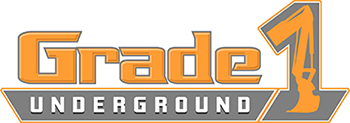If you’ve got a big construction job coming up and need a subcontractor to handle excavation, it’s important to do your due diligence before you make the hire.
With this in mind, we have a few tips about what you need to know before hiring an excavator for your job. Carefully considering these issues will help you find a contractor that will get the job done safely, effectively and efficiently.
The size of the equipment you need
Excavators come in a wide range of sizes. You can find small, compact, lightweight options and massive pieces of machinery that exceed 90 tons. It is important to get the right machinery for the job, and not every excavation company will necessarily have exactly what you need for your job.
Smaller excavators are often used on smaller jobsites where it is more important for the machinery to be mobile and versatile than it is for it to be able to handle extremely heavy loads. This also helps to save costs in jobs where a larger model might be wasteful for the needs of the site.
Larger excavators will generally be used on jobsites where you need to maximize load capacity and where there is minimal mobility needed.
Where the excavator will unload
Where will the excavator be unloading at the jobsite? This is an often-overlooked issue that is important to consider when selecting equipment (and, therefore, a contractor). Will the team be dumping into a pit, on to the back of a truck, on a mound or otherwise?
Whatever the case, it is important to have an excavator with a boom height that is sufficient for the workload and that can dump the materials where they need to go.
The type of bucket
There are many different types of buckets and attachments, each of which comes in varying shapes and sizes. These buckets are used for different purposes at work sites. You’ll need to make sure you have the right bucket available to pair with the type of excavator you’ve chosen for the job.
Some of the factors that will influence your choice of bucket include the type of materials you wish to move, your desired load capacity and the model of excavator you’ll be working with.
The digging process
Some excavators are stronger than others, which means they’re capable of digging down lower. Consider the depth you’ll need to dig in your upcoming project and how much force will be necessary to dig to that depth and transport the material being excavated. This will influence your choice of excavator as well as the various attachments you will need for the job.
These are just a few things to consider when hiring an excavator, beyond issues such as the company’s professionalism, reputation, insurance and capabilities. Ready to discuss your needs for your upcoming excavation job? We encourage you to get in touch with our team at Grade-1 Underground with any questions or issues you have. We look forward to working with you soon.
